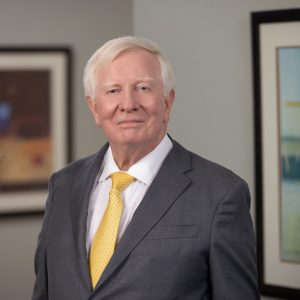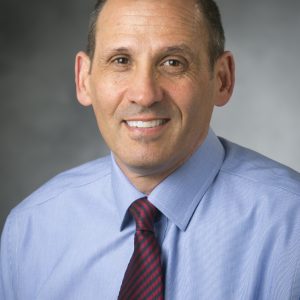CEO Leadership Series: Donna L. Tempel, PhD, President and CEO, Drais Pharmaceuticals, Inc.
USING VIRTUAL BIOTECHS TO MOVE DRUGS INTO DEVELOPMENT MORE EFFICIENTLY
This year, Bridgewater, NJ-based Drais Pharmaceuticals, Inc., has launched a new business model. According to Drais President and CEO Donna Tempel, PhD, the company created two virtual biotechs to more efficiently and effectively pursue clinical stage drug development. During an interview with Ashton Tweed, Tempel talked about Drais’ virtual biotech business model, as well as shared her personal insights as to what it takes to be successful in pharma today.
Drais Pharmaceuticals, Inc.’s New Business Model
Earlier this year, Drais formed a partnership with Tokyo-based Astellas Pharma Inc. to move two of Astellas’ promising compounds forward by transferring ownership of the compounds to virtual companies operated by the Drais executive team:
Telsar Pharma, Inc. was formed in April to develop and commercialize a melanocortin receptor agonist for the potential treatment of ulcerative colitis.
Seldar Pharma, Inc. was formed in June to develop and commercialize a bombesin BB2 receptor antagonist for the treatment of irritable bowel syndrome with diarrhea.
In addition, Drais is currently in the process of setting up a third virtual company to develop another Astellas compound. The core team of nine employees at Drais manages all of the virtual companies, using contract research organizations and other external vendors to move the compounds into development.
Virtual Biotechs Provide Flexibility for Drais
Flexibility is the key benefit of this type of business model, Tempel explains. For example, there are times when venture capitalists may not be interested in investing in certain therapeutic areas. By creating compound-specific companies, Drais allows investors to target their investments on an individual compound. Plus, this business model also provides more flexibility and fewer complications in the future: If Drais tries to either partner or sell a compound to a third party, other compounds in the pipeline won’t be a consideration.
As far as drawbacks are concerned, says Tempel, this type of business model is “slightly complicated.” In addition to the extra effort required to set up the individual companies, each virtual biotech has its own accounting system and separate legal issues. Plus, there’s likely a limit to how many virtual companies could be effectively managed. “For example, 20 virtual companies would be unwieldy,” observes Tempel. At a company such as Drais, the executive team isn’t looking to work on 20 different compounds at one time, she says, “so it sits nicely with our model.”
It Takes the Right Team to Thrive in an Entrepreneurial Environment
Drais is Tempel’s second entrepreneurial effort in the pharmaceutical industry. Prior to cofounding Drais, Tempel was chief operating officer at AkaRx Inc., where she led the clinical development of a small-molecule thrombopoietin receptor agonist. The Japanese pharmaceutical company Eisai Co., Ltd. successfully acquired AkaRx and rights to the company’s compound in 2010.
For Tempel, getting AkaRx off the ground was by far the biggest challenge in her career. She admits that there were days when she and the other three members of the team at AkaRx were ready to “just throw in the towel.” But they remained committed to making it work and learned to “roll with the punches.”
Assembling the right team to work with on these entrepreneurial ventures is paramount to success and one of the hardest parts of building a company. According to Tempel, finding people who are the “right fit” is more important compared to having all of the right requirements in their CVs. She advises patience in the interview process – both for the people interviewing and those who are being interviewed – since it takes a series of interviews over a period of time to determine if the fit is right. The type of team members she looks for have integrity and personal accountability, are open to new challenges, and are willing to try different things. The entrepreneurial environment is not for everybody, Tempel admits. “It can be very intense, and there’s a lot of risk involved.”
Success Comes With a Little Bit of Luck and a Lot of Hard Work
Compared to big pharma, however, working in the entrepreneurial environment of small biotechs is “much more fun,” says Tempel. Unlike in big pharmaceutical companies, the decision-making is faster, and each person on the team is totally accountable. She sums up, “The highs are higher and the lows are lower.”
When asked her secrets to success in the pharmaceutical industry today, Tempel replies, “There are no secrets. It takes a little bit of luck and a lot of hard work. And you have to really love what you do.”
Ashton Tweed would like to thank Donna Tempel for this interview. If your company needs help from members of the Ashton Tweed Life Sciences Executive Talent Bank, we can supply that assistance either on an interim or a permanent basis. Additionally, if you are among the many life sciences professionals affected by the changes in the industry, Ashton Tweed can help you find the right placement opportunity — from product discovery through commercialization at leading life sciences companies — including interim executive positions and full-time placements. In either case, please email Ashton Tweed or call us at 610-725-0290. Ashton Tweed is pleased to continue to present insightful articles of interest to the industry.
Donna L. Tempel, PhDCofounder, President, and CEO of Drais Pharmaceuticals, Inc. Donna Tempel is cofounder and president and CEO of Drais Pharmaceuticals, Inc. Prior to cofounding Drais in 2008, Tempel was chief operating officer of AkaRx, Inc., where she was responsible for overseeing the clinical development of AkaRx’s treatment for thrombocytopenia (AKR-501). Tempel was vice-president, Project Management, at Yamanouchi Pharma America, where she was responsible for overseeing the conduct of all clinical development programs, including those for Vesicare® and Vaprisol®. At Yamanouchi, Tempel was responsible for building the project-management organization globally and for implementing project-management principles and practices. Prior to joining Yamanouchi, Tempel held various positions in clinical research and development at Bristol Myers Squibb and Johnson and Johnson.
Tempel received a BS in psychology and mathematics from Hunter College, CUNY, a doctorate in neurological sciences from CUNY/Mount Sinai School of Medicine, and an MBA from Farleigh Dickinson University.





